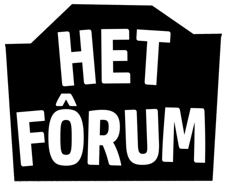The phrase ‘ladies and gentlemen’ has always struck me as a bit odd. I’ve spent quite some time cycling around thinking of alternatives to it to include all my non-binary and gender nonconforming pals, when at some point it got me thinking ‘Why do I need to think of an alternative in the first place?’
The phrase ‘ladies and gentlemen’ is old, but not as old as you might think. Wikipedia says that it originates from the 19th century. This however is not because we only then started welcoming groups with gendered greetings, but because before that phrases such as ‘Gentlemen and ladies’ were more popular. It’s actually pretty interesting that this has shifted so drastically, and could reflect mainly a change in etiquette that stems from the increase in womens rights that follows a ‘women and children first’ kind of vibe instead of a ‘why is there a woman here?’ one.
This is not what strikes me about the phrase ‘Ladies and gentlemen’ though. What stikes me is the need to greet men and women separately. Even in versions that aim to be more inclusive, this distinction usually remains, for example in ‘Guys, gals and nonbinary pals’ or ‘Ladies, gentlemen and everything in between’. For some reason, in a group of people, the only distinction that is relevant to mention immediately upon speaking is that of gender.
This, to me, could be because of two things. The first is that gender is viewed by our society as the most important characteristic someone has. I get that this is a pretty bold claim to make, but there are many more things that point towards this (enough that you could probably write something more substantial than this article about it). When describing someone, people generally always name a gender unless deliberately avoiding it, gender is on our passports, it is the first thing people care about when getting pregnant (even before health sometimes, which is wild). This is not even considering that it is only pretty recently in human history that women have been getting the same rights as men.
The second is that it’s the only semi-important distinction you can make that has a nice dichotomy to it, if you ignore queer people. ‘Welcome, people who like sports and people who dislike sports and people who are neutral about it’ just doesn’t have the same ring to it. Also, a lot of characteristics automatically have positive or negative connotations attached. You can’t very well say ‘Smart and dumb people’, even if you would find that more important than gender.
Neither of these explainations is fully satisfactory to me, and both still leave the question of why you would split the group in the first place. It makes me think of the drama when the NS (Dutch railway company) changed it’s greeting over the intercom from ‘Ladies and gentlemen’ to ‘Dear travellers’ to include nonbinary people, and the media started making a fussabout some transphobic nonsense, fully ignoring that ‘Dear travellers’ is actually a much more accurate greeting for a railway company to have regardless of gender.
For now I will leave you with my favorite gender neutral non-dividing alternative, which is ‘Esteemed guests’, because it makes me feel fancy to be called ‘Esteemed’. Alternatively, ‘Dear members’ also works.
